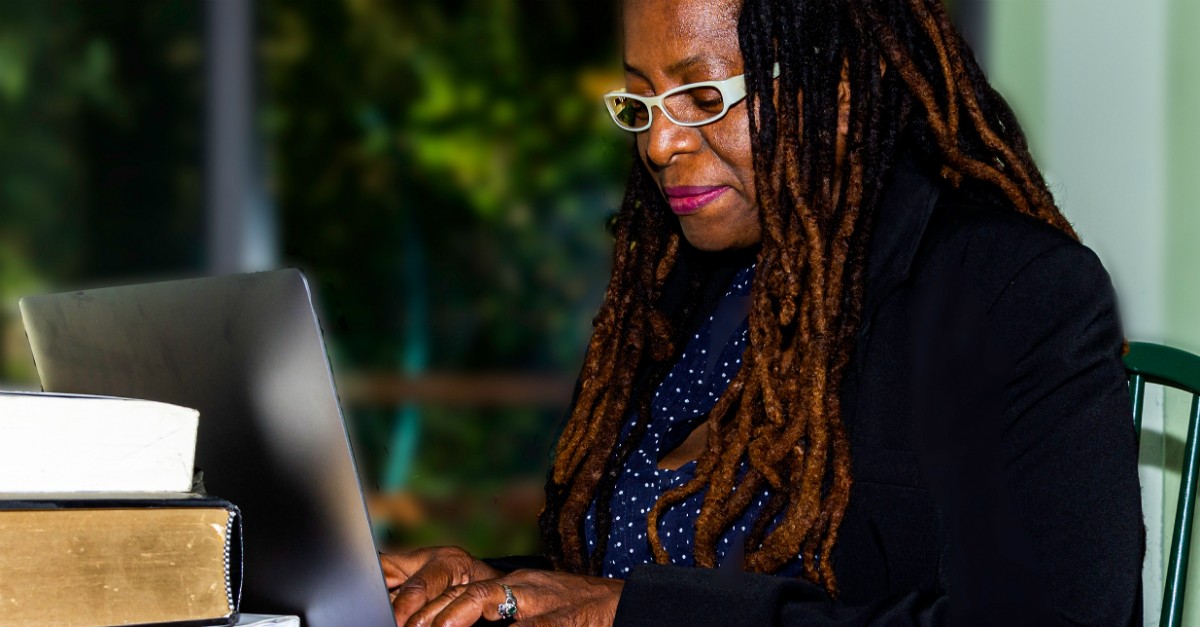
In a lecture titled “Maybe We Just Need a Different Chicken,” sociologist and philosopher Slavoj Žižek suggests,
“Ideology is not for me some crazy abstract intellectual edifice and articulated worldview
made to distract you from real problems—to mystify them. It’s the very way we perceive real problems. Ideology is efficient because it deals with very real problems—ecology, racism, and so on—the mystification is in the way it…perceives these problems. The lesson is that there are not only wrong answers to questions. There are also wrong questions in the sense that…the very way we perceive a problem is effectively a part of the problem.”
As we evaluate the political divisions and polarization in the United States, we need to consider whether we are asking the right questions. Are we perceiving the problem in a way that has become part of the problem?
In what follows, I will suggest that we, as Christians, too often ask the wrong questions. The way we frame a problem has become part of the problem. For Christians, political positions are not logical but theological problems. They arise because our minds are shaped by politics rather than by Christian theology. So, how can we reorient ourselves? To adopt a new posture that will allow us to see the world with theological eyes, we need to consider at least the following three questions:
- Am I focused on living with an understanding based on the underlying dynamics of reality even when political arrangements shift and change?
- How do the political realm and its actors gesture toward and distort reality?
- Is my frustration over political matters prompting me to point to and glorify the Triune God?
Photo Credit: ©Getty Images/natasaadzic

Strengthening Our Faith to Withstand Political Change
Coming out of the period of the judges and disappointed by the next generation of leadership—first by Hophni and Phineas (1 Sam 2:12-21) and then by Samuel’s sons (8:1-3)—Israel requests “a king to judge us like all the nations” (8:5). Though this request constitutes a rejection of God as king over Israel (8:7-8), God tells Samuel to listen to “obey their [the people’s] voice; only you shall solemnly warn them and show them the ways of the king who will reign over them” (8:9)
After God chooses Saul to serve as king over Israel, Samuel transitions away from his role in Israel. In his “farewell address,” Samuel reminds Israel that while the political arrangements are changing, the underlying dynamics of reality remain the same. Despite their rejection of Him, God is still king over Israel. Israel’s request for a king doesn’t negate the fundamental authority structure in which God delegates authority to earthly rulers (cf. Rom 13:1-4). The shift from judges to a monarchy does not alter Israel’s obligation to “fear the Lord and serve him and obey his voice and not rebel against the commandment of the Lord” (1 Sam 12:14). This obligation applies to both the people and “the king who reigns over” the people (12:14).
Today, Christians should recognize that these underlying dynamics haven’t changed. Christ has been given “all authority in heaven and on earth” (Matt 28:18). Our role is to live under that authority as disciples while also drawing others under Christ’s authority through baptism and teaching (28:19-20). God is still in authority. Christians are committed to living under that authority, even when it is less comfortable than we might like.
Our political arrangements are not trivial. Those in authority enact policies with negative consequences for some and positive consequences for others. Governing authorities may change the conditions in which Christians exercise their faith, but the underlying dynamics don’t change. We are to keep the Lord at the forefront of our vision. Our attention is to be focused on Him so that we respond to Him from within a given situation rather than reacting to the situation itself. As we orient ourselves to live with the understanding that God has unqualified authority over our lives, we recognize that faithfulness is always our strategy. We can focus on representing God’s will rather than winning a political debate.
Photo Credit: Unsplash/Angelica Reyes

Finding the True Good in Politics without Taking Sides
In The Righteous Mind, Jonathan Haidt describes the different ways morality is perceived by those on the political “left” and “right.” For instance, when discussing fairness, which he identifies as one of six moral foundations (care, fairness, loyalty, authority, and sanctity), Haidt notes, “Everyone cares about fairness, but there are two major kinds. On the left, fairness often implies equality, but on the right, it means proportionality—people should be rewarded in proportion to what they contribute, even if that guarantees unequal outcomes.” These different perceptions of moral foundations create differences of opinion that drive disagreement and confusion. As Meek and Wydick note in their recent Christianity Today article, “these deep moral differences make it nearly impossible for liberals and conservatives to understand each other.”
Fortunately, Christians do not (or should not) approach political matters from the left or right but as Christians. Christians can acknowledge when those holding differing political views are pointing toward “the good.” Neither the left nor the right represents “the good” in all its fullness, nor do their positions produce it. Rather, our political arrangements allow the goodness of God to shine through in certain ways while resisting or blocking it in others.
Think of political positions like a Lite-Brite. The source of the light lies behind a dark sheet of paper and shines through, where translucent colored pegs are pushed through the paper to create a pattern. God is the light or source of goodness. Political parties and their positions are paper and translucent colored pegs. They form patterns through which God’s goodness shines through while, at the same time, blocking aspects of God’s goodness. The trouble isn’t that no goodness ever shines through, but that political parties assume that (a) they create the goodness by instituting certain patterns and (b) the goodness that shines through the political arrangements is (or ever could be) complete.
Christians can help navigate the divisive political climate by giving those with differing political views their due. When the left or the right identify and pursue good, we should acknowledge it, even as we recognize that the good they pursue is incomplete. For Christians, avoiding political polarization is relatively simple because, while we acknowledge and celebrate “the good” we see in the world, we always seek a fuller sense of “the good” rooted in the Triune God. Christians recognize “the good” wherever we find it, but we don’t settle for it. We know that the good in this world is only a shadow of what is to come.
Photo Credit: ©GettyImages/Paul Giglia

Keeping the Gospel Central in a Politically Divisive World
In Acts 17, we find Paul in Athens, where “his spirit was provoked within him as he saw that the city was full of idols” (17:16). After preaching the gospel, Paul is brought to the Areopagus to explain his message. He begins his conversation with an observation: “Men of Athens, I perceive that in every way you are very religious” (17:22). While it is possible to see Paul’s statements as complementary, the word translated “religious” is a relatively ambiguous term and can also denote “superstition.” Given Paul’s aversion to the idolatry he has seen in Athens, it seems best to see his opening statement as a criticism of Athens. He continues that critique by noting their worship of “the unknown god” (17:23).
Paul, however, is not content with critique and quickly transitions to the gospel. He notes that the God the men of Athens do not know is the God he proclaims (17:23-29; 32-33). It is this God that has “overlooked” “the times of ignorance,” but “now he commands all people everywhere to repent” (17:30). Paul does not get defensive…he goes on the offensive with the gospel.
While Christians should be understanding and compassionate, we must also be bold. We need to avoid being rude or arrogant so that our demeanor does not become a stumbling block for those who need to hear the gospel. However, the gospel will be offensive to some even as it is transformative to others. As we look out at our politically divisive culture, then, we need to take care not to make the boundary between heaven and hell the political positions of the right or the left, but the gospel of Jesus Christ. To put it differently, we need to let the gospel offend instead of our political opinions. In doing so, we are, if nothing else, fighting the right enemy (cf. Eph 6:12).
Photo Credit: ©GettyImages/Vitezslav Vylicil

When Politics Divide, Let the Gospel Unite
Divisiveness seems inevitable. Human disagreements often divide. As Christians seek ways to navigate a divisive political environment, we need to remember that our behavior can diminish God’s reputation (1 Tim 6:1; Titus 2:5). Our task is not to be loved (or even liked) by everyone but to live faithfully “so that when they [the Gentiles or those outside the community of faith] speak against you as evildoers, they may see your good deeds and glorify God on the day of visitation” (1 Pet 2:12). Our offense is the gospel. Our scandal is proclaiming the Lord Jesus Christ. As such, as we seek to engage a culture polarized by politics, we stand apart from the right and left as those who have been set apart for the work of the gospel. The gospel is our message (even in a divisive political environment), and we must proclaim it in word and deed as we point to and glorify the Triune God.
Photo Credit: ©GettyImages/ Maskot

Originally published Thursday, 07 November 2024.

